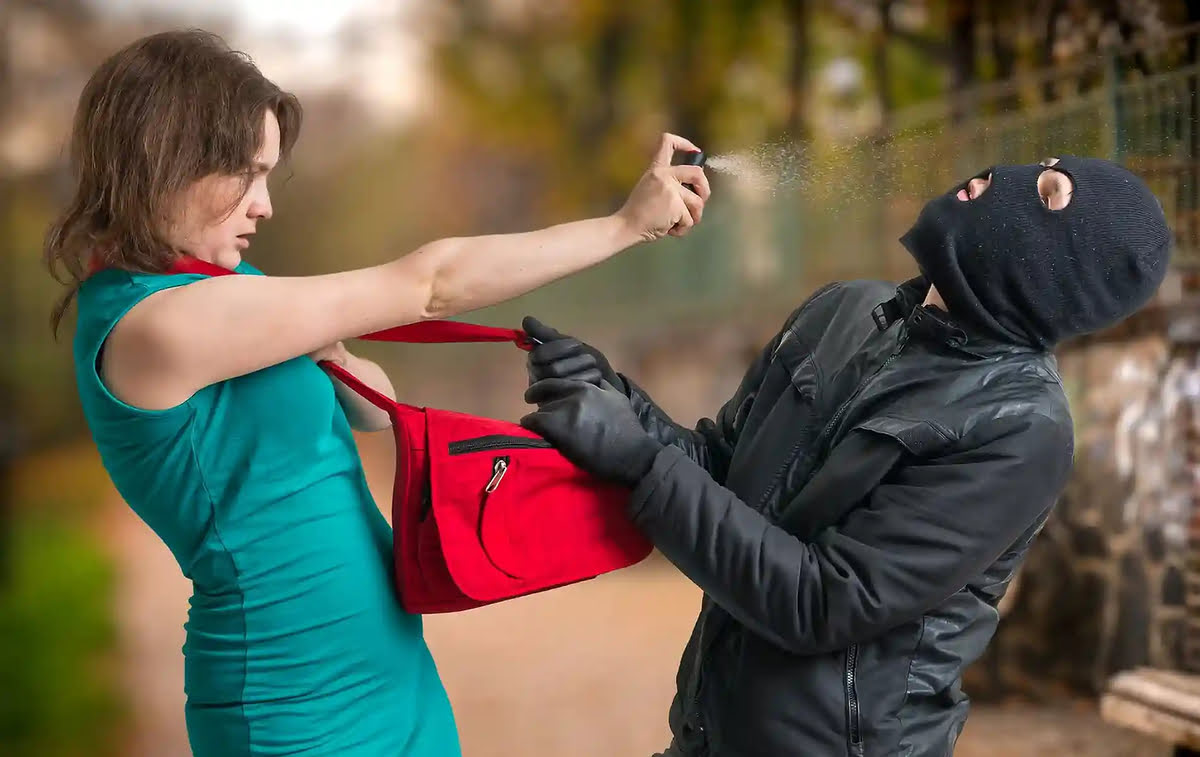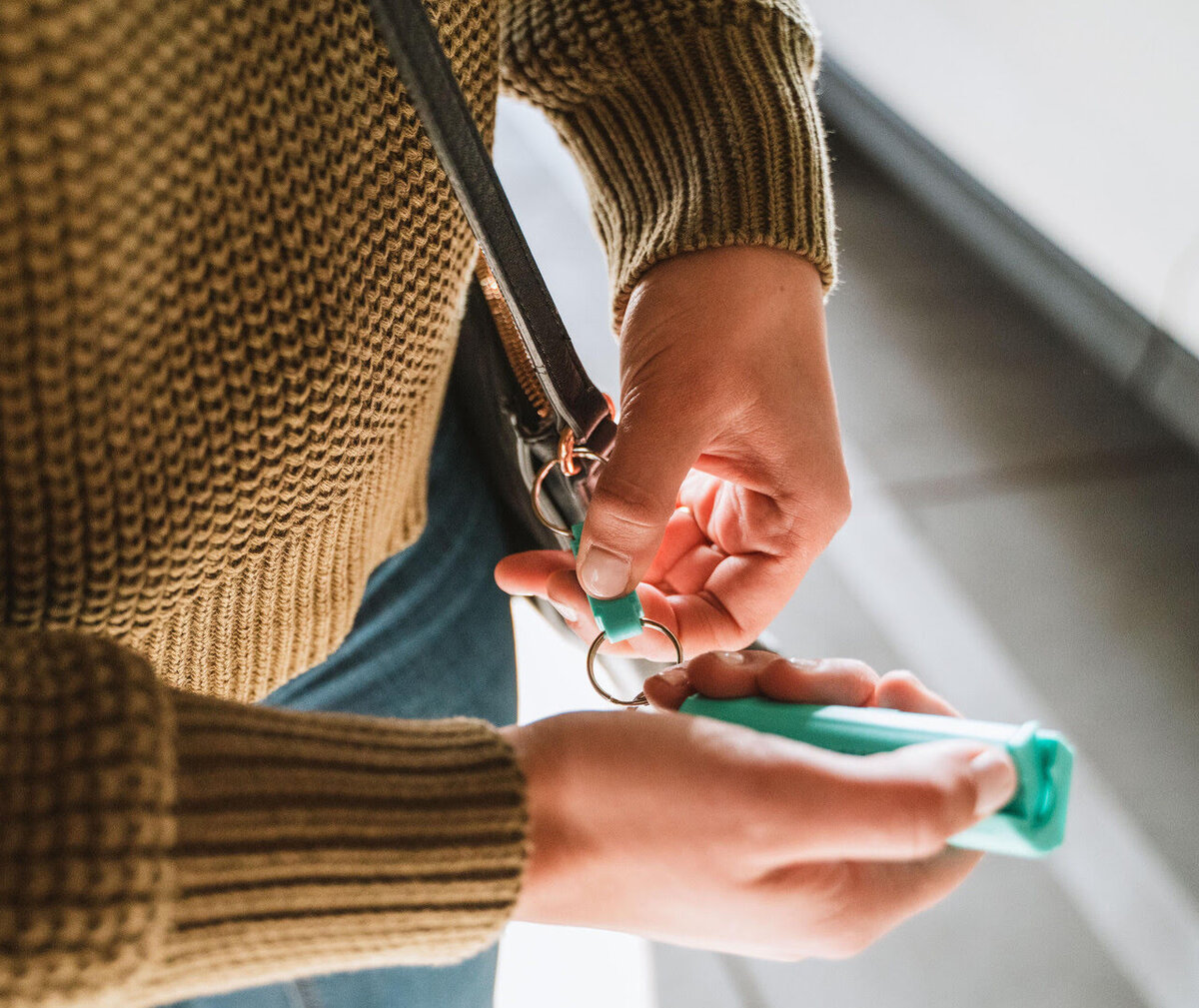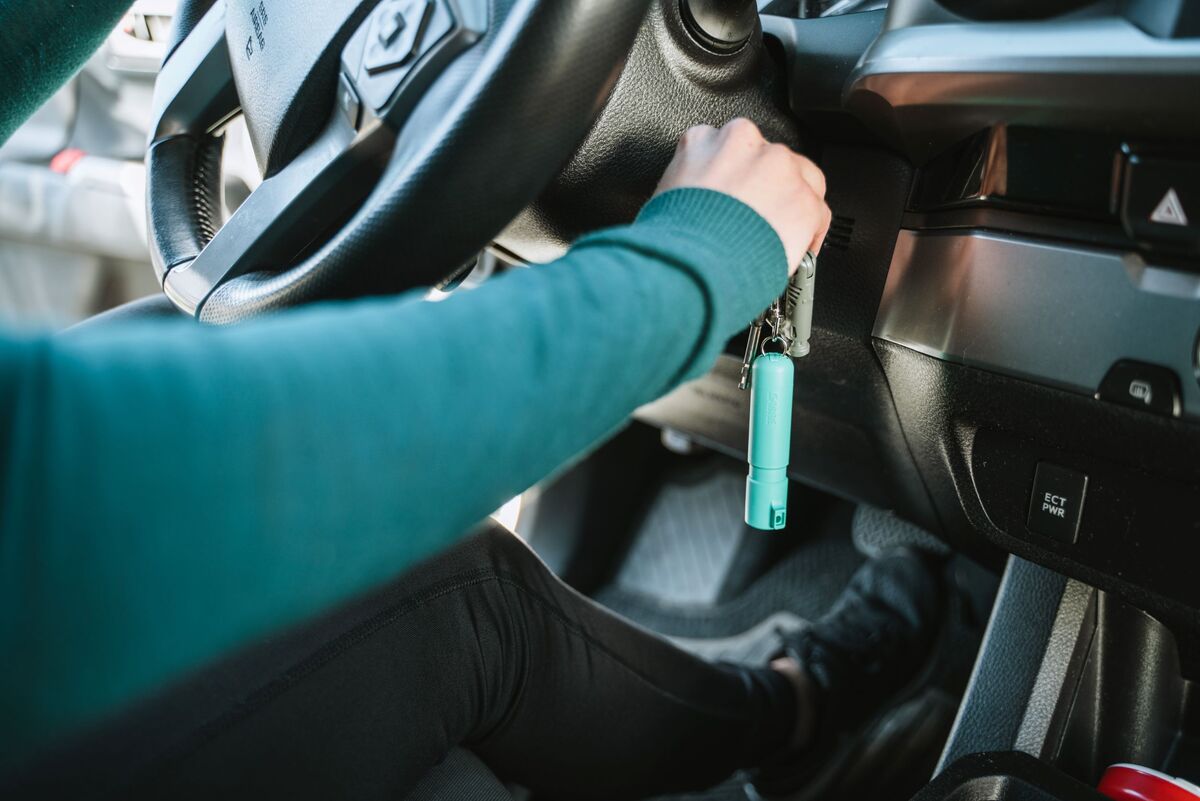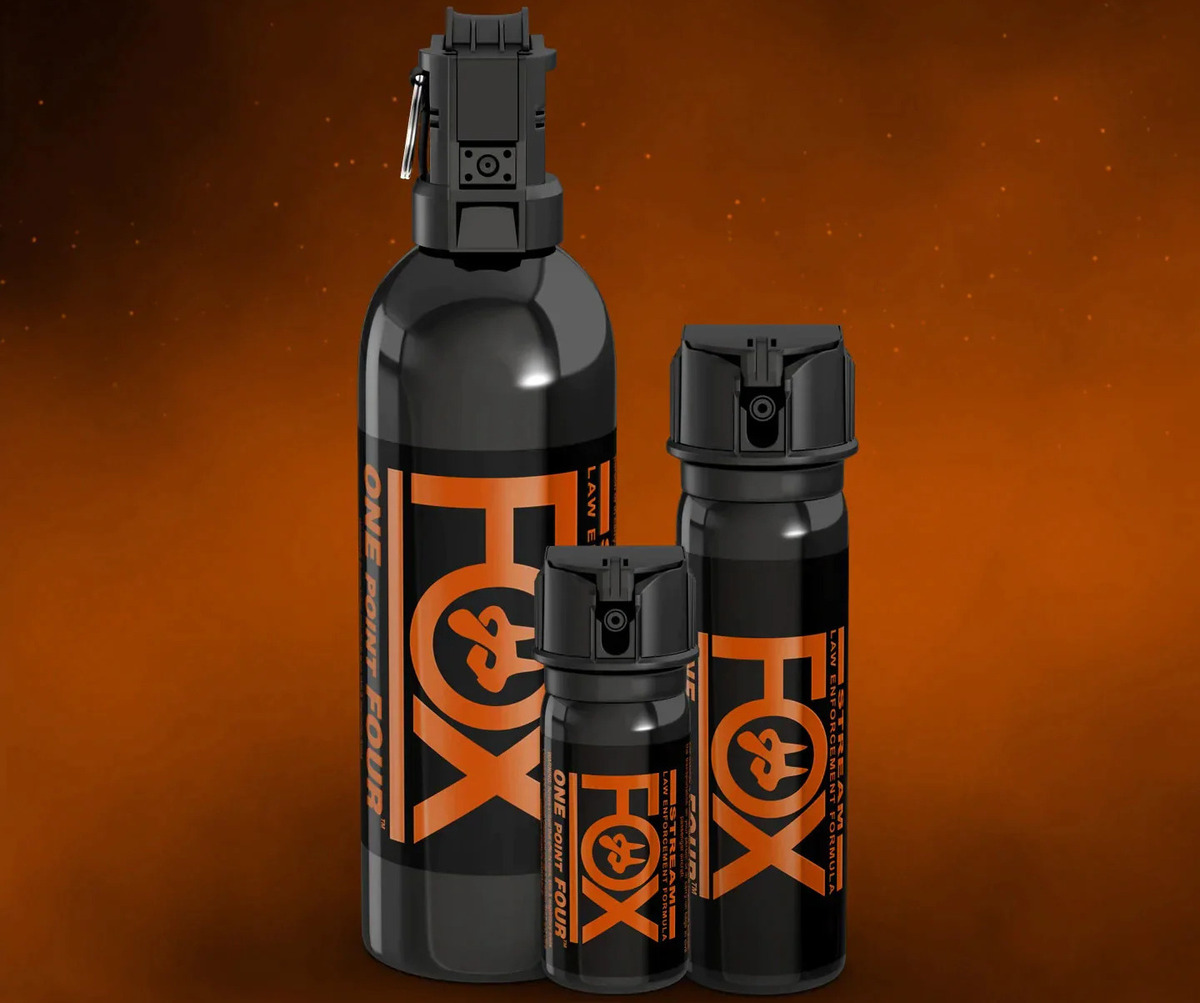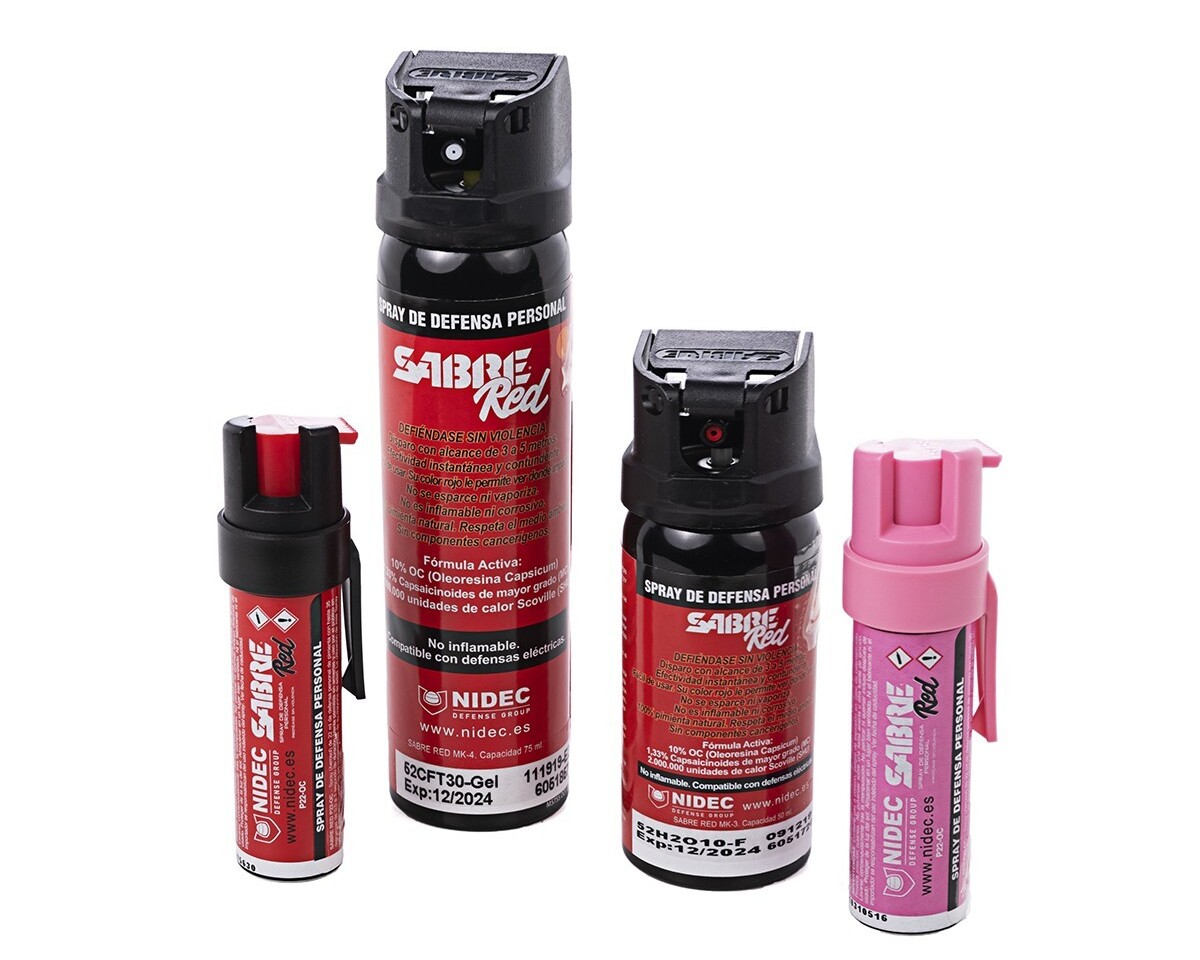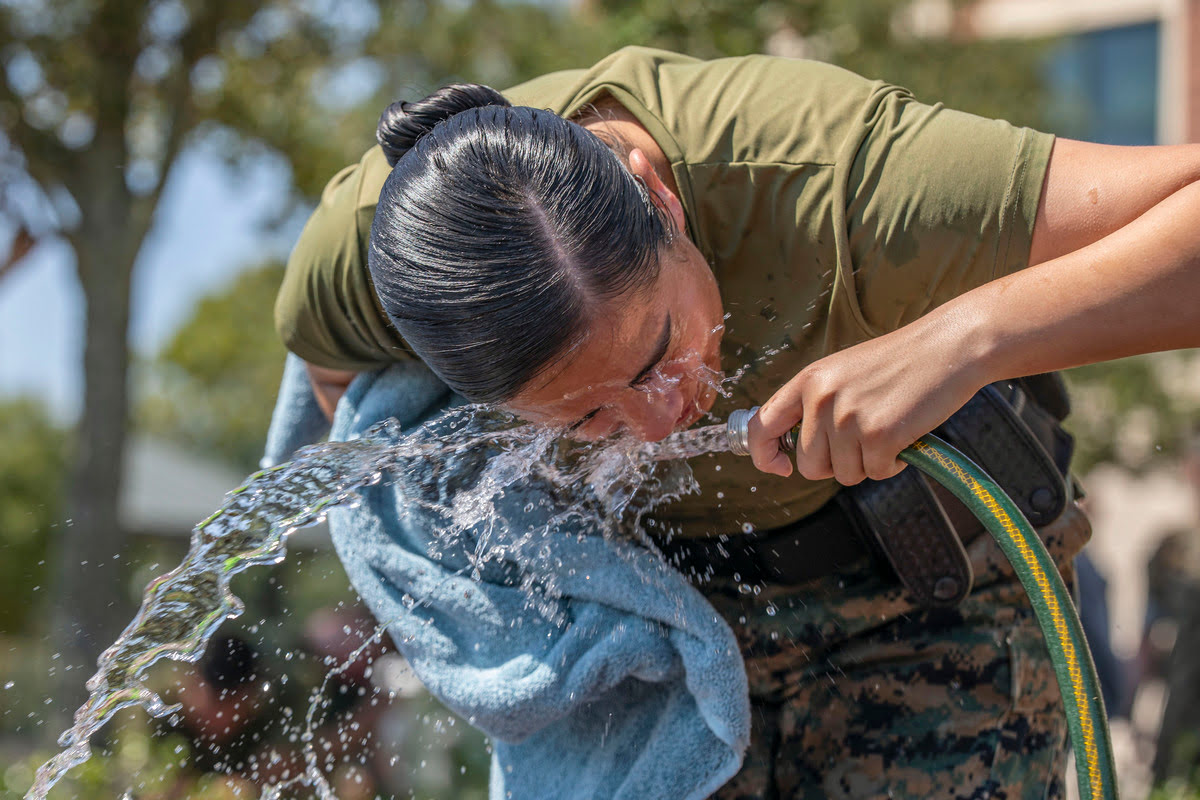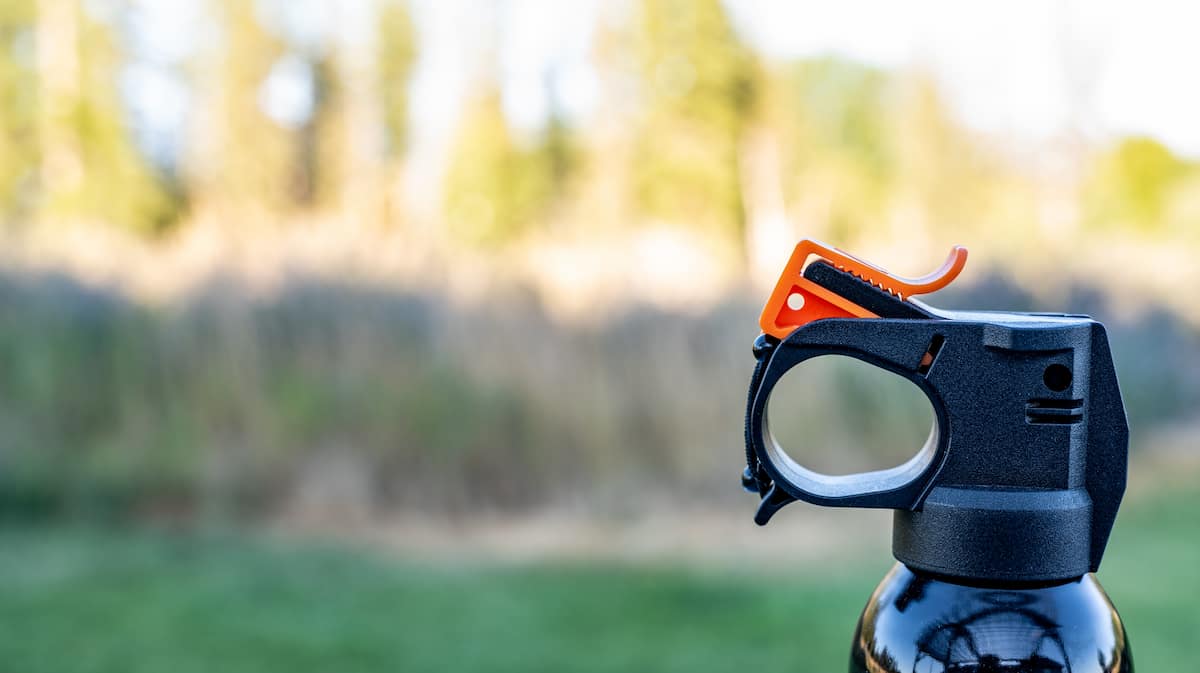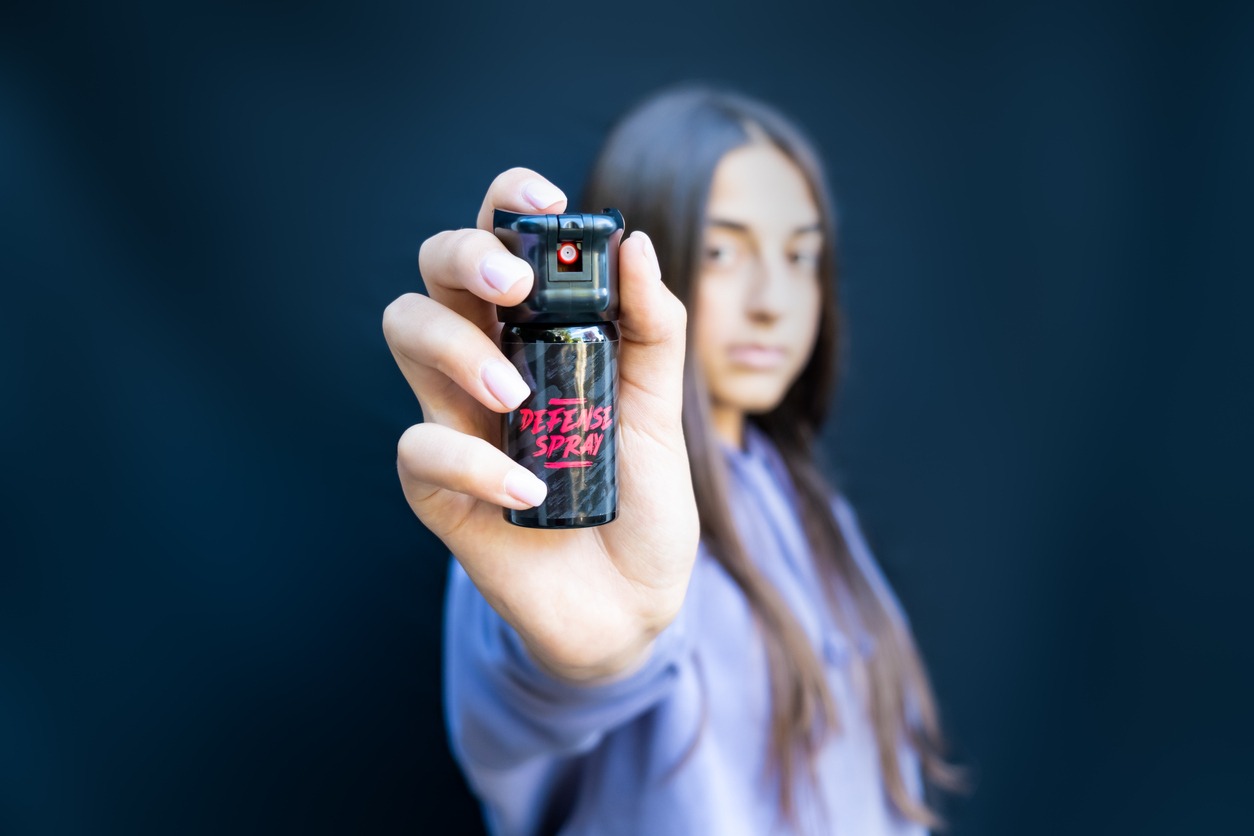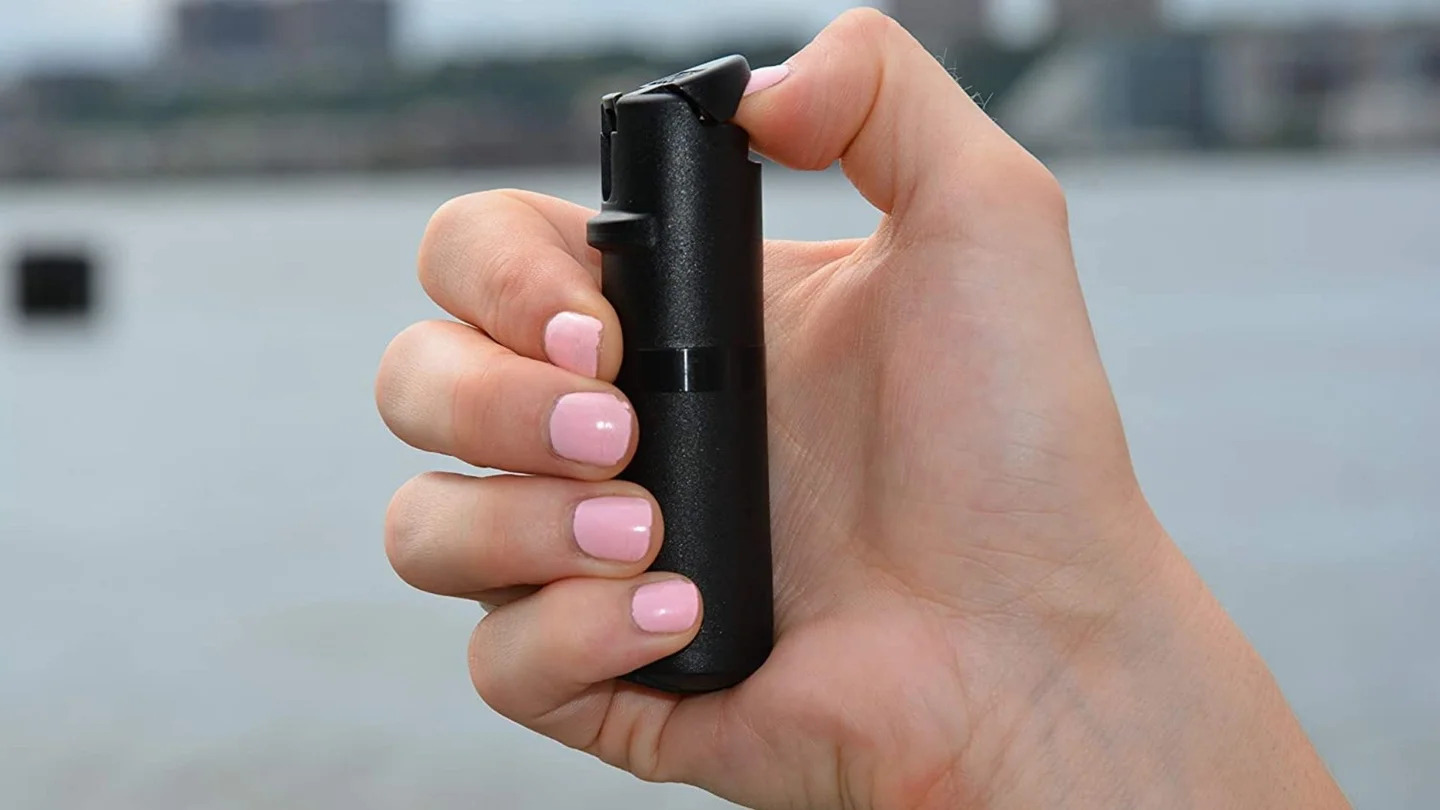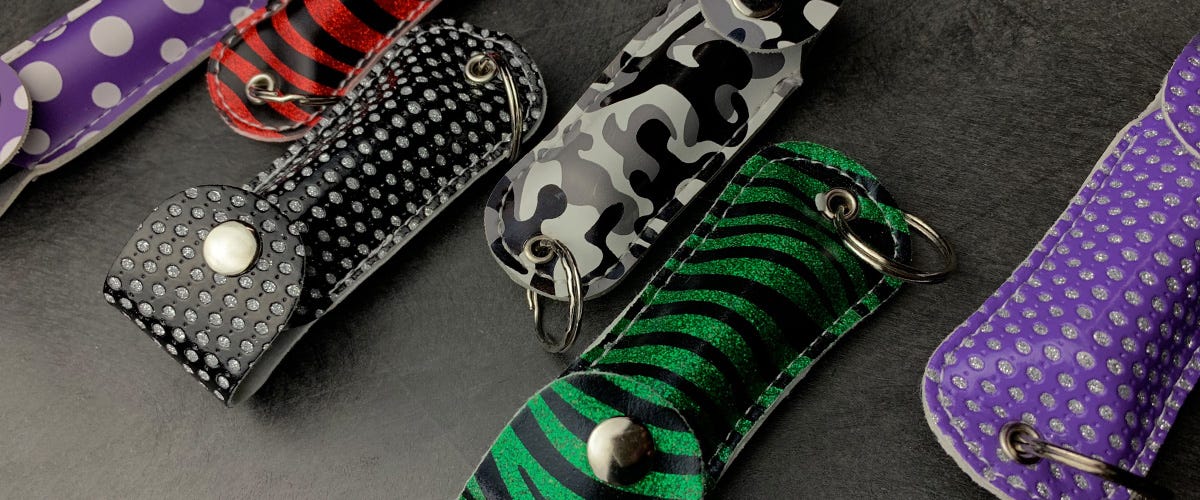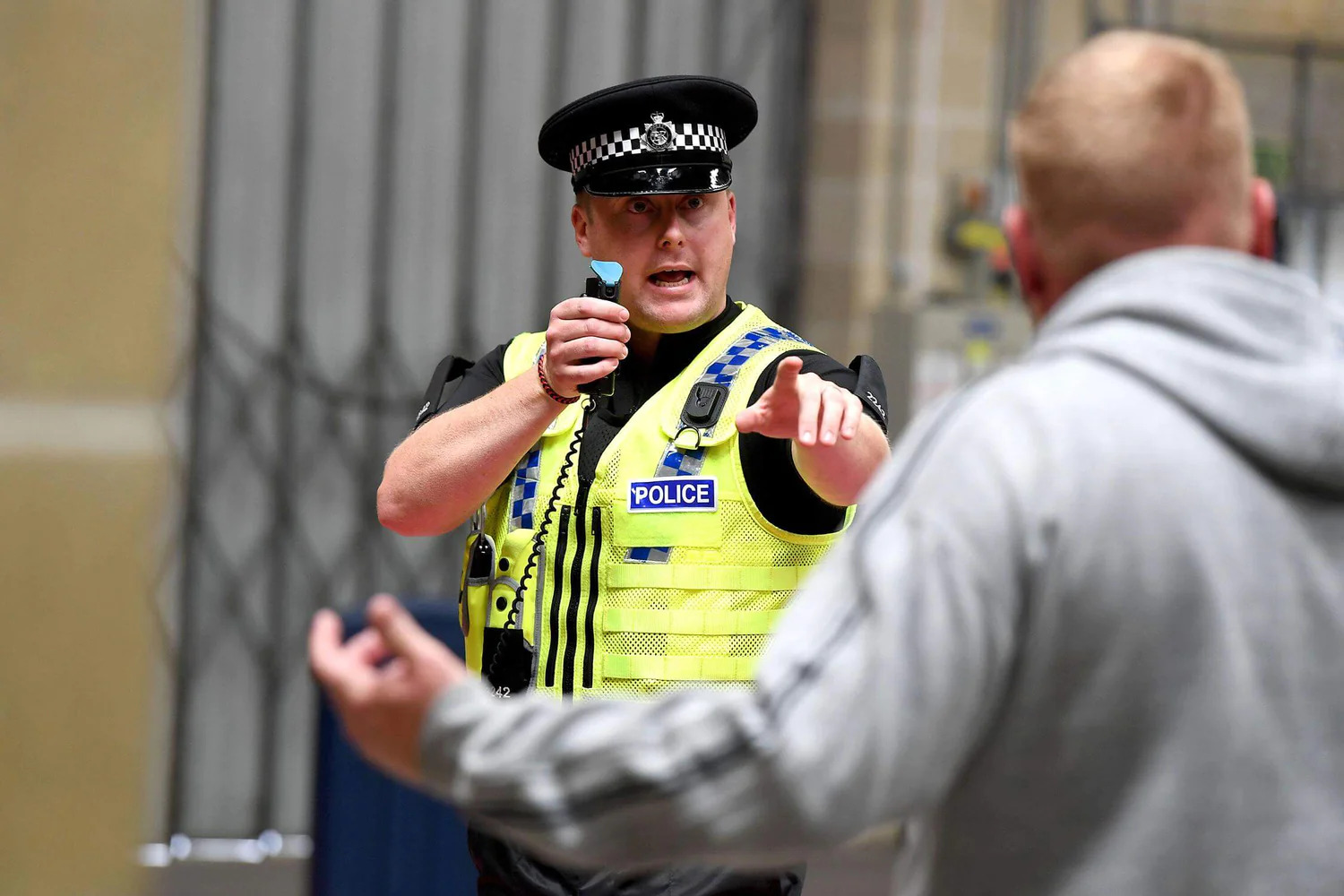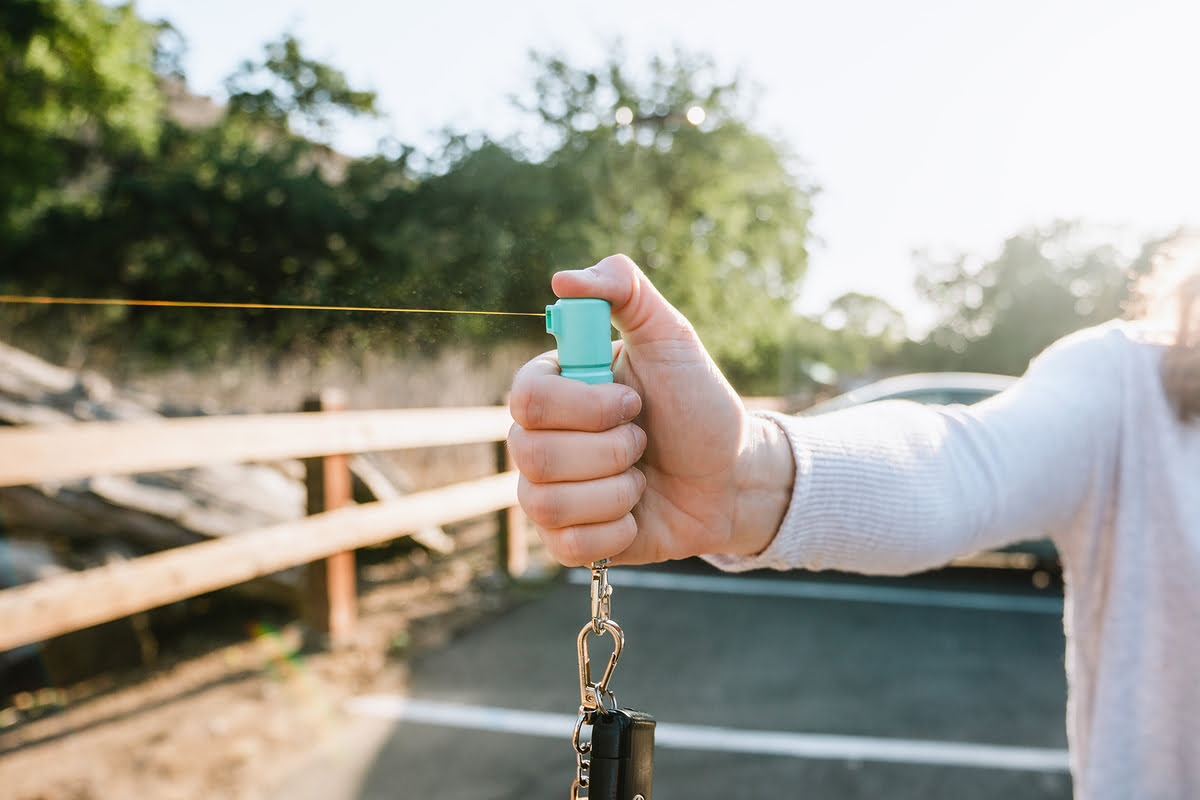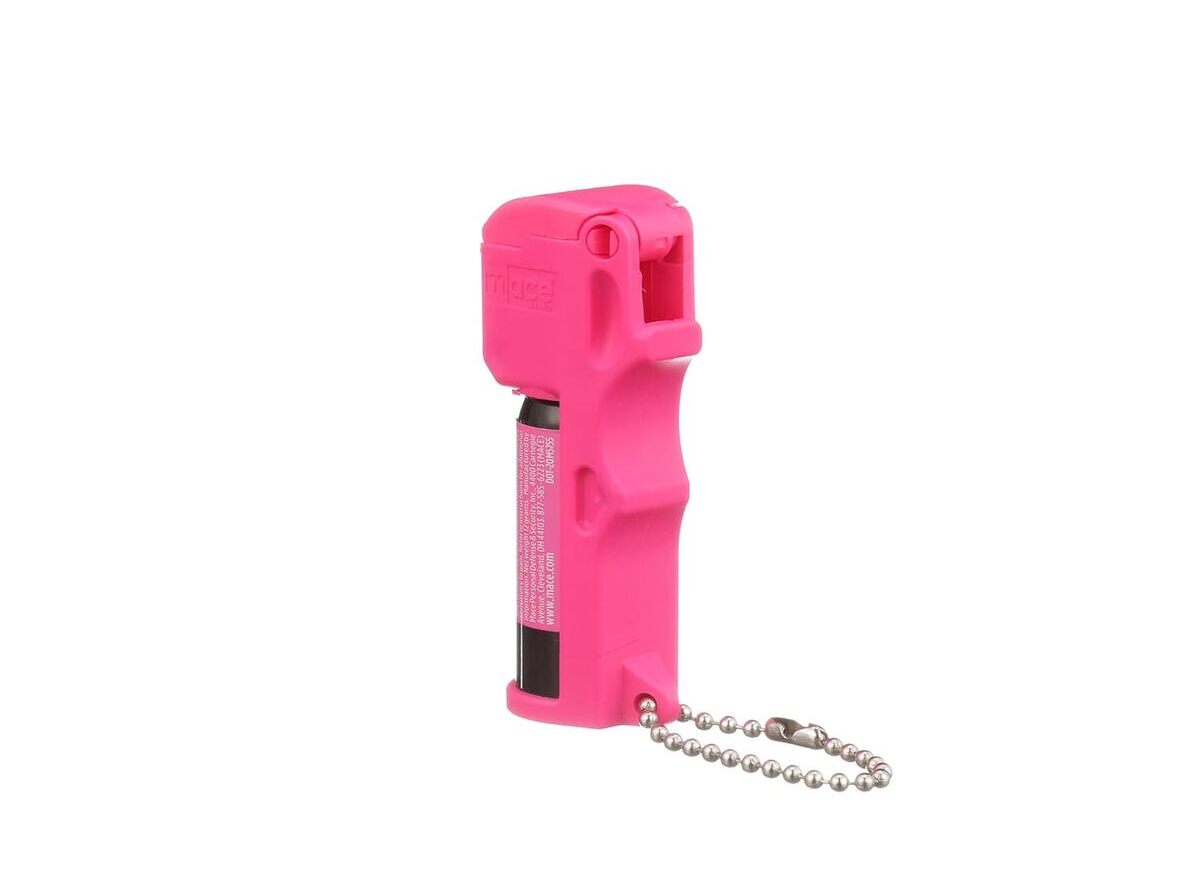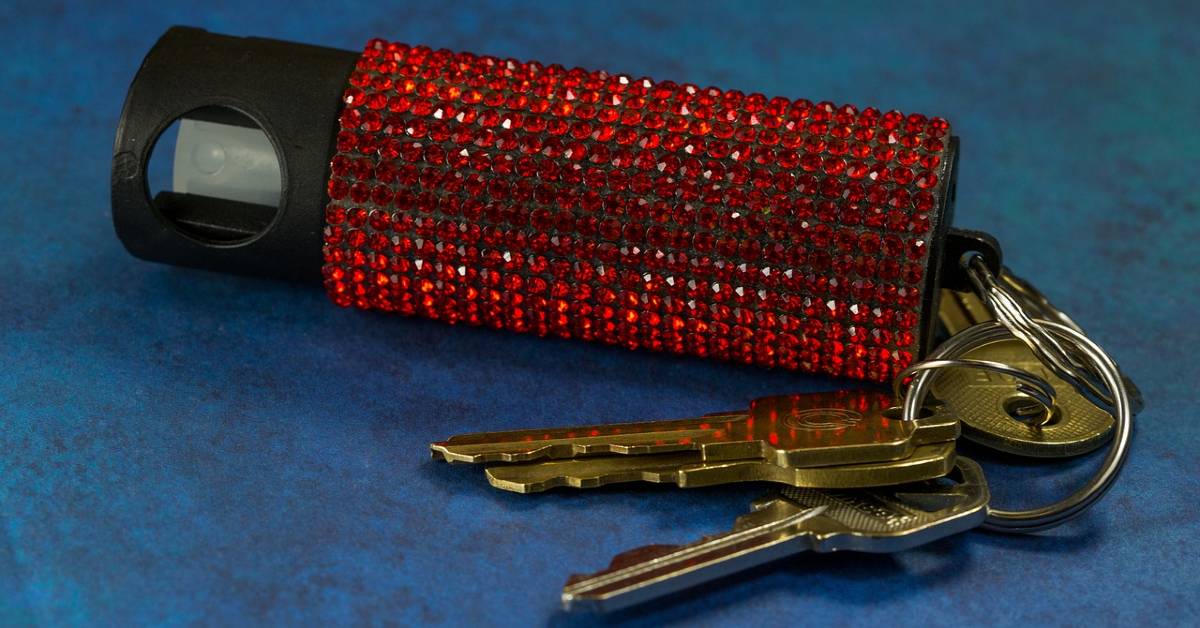Home>Home Security and Surveillance>What To Do When Sprayed With Pepper Spray
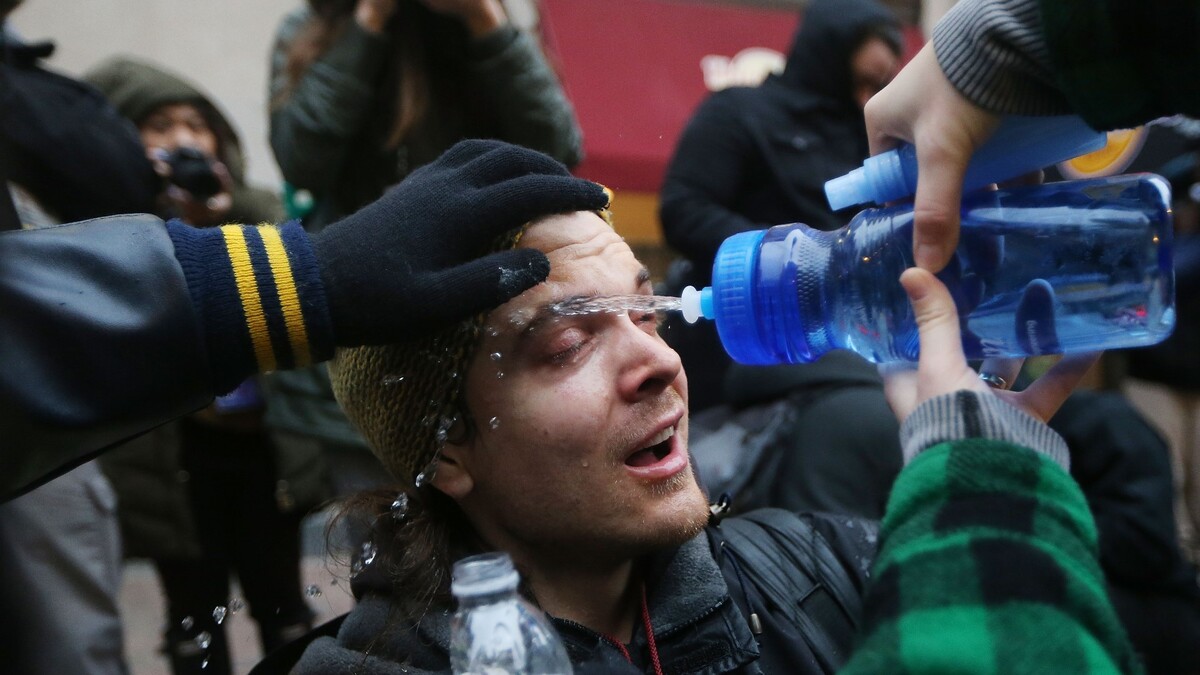

Home Security and Surveillance
What To Do When Sprayed With Pepper Spray
Modified: March 6, 2024
Discover effective home security and surveillance strategies to stay safe and protected. Learn what to do if sprayed with pepper spray for maximum personal safety.
(Many of the links in this article redirect to a specific reviewed product. Your purchase of these products through affiliate links helps to generate commission for Storables.com, at no extra cost. Learn more)
Introduction
Pepper spray is a highly effective self-defense tool that can incapacitate an attacker by causing intense eye and respiratory irritation. While it is a valuable asset for personal safety, it’s important to know what to do if you find yourself sprayed with pepper spray.
In this article, we will explore the immediate actions you should take, how to deal with the effects of pepper spray, when to seek medical assistance, self-care tips for recovery, and prevention strategies to avoid such situations in the future.
With proper knowledge and preparedness, you can navigate through this challenging situation and minimize its impact on your well-being.
Key Takeaways:
- If sprayed with pepper spray, stay calm, move away, rinse your eyes, and seek medical help if needed. Practice self-care and prevention strategies for personal safety and well-being.
- Understanding pepper spray effects, immediate actions, and self-care tips can empower you to navigate through challenging situations with resilience and confidence. Remember, prevention is key for personal safety.
Read more: What To Do For Pepper Spray In Eyes
Understanding Pepper Spray
Pepper spray, also known as OC spray (oleoresin capsicum), is a non-lethal chemical compound derived from hot peppers. It contains capsaicin, the active ingredient responsible for its potent effects. When sprayed onto an individual, it causes intense burning, pain, and temporary loss of vision.
Pepper spray is widely used by law enforcement, security personnel, and individuals for self-defense purposes. It comes in different forms, including aerosol cans, keychain-sized canisters, and even concealed devices. Its main purpose is to incapacitate an assailant, giving the victim an opportunity to escape from a dangerous situation.
It’s essential to understand that pepper spray affects everyone differently. Factors such as the concentration of capsaicin, the proximity of the spray to the face, and the individual’s sensitivity can influence the severity of the effects.
It’s important to note that using pepper spray should be as a last resort in a dangerous situation. Understanding local laws and regulations regarding the use of pepper spray is crucial, as misuse or improper use can lead to legal consequences.
Pepper spray is easy to carry and access, making it a popular choice for individuals seeking a portable and effective self-defense tool. However, it’s vital to use it responsibly and only when absolutely necessary to protect oneself.
Immediate Actions
If you find yourself sprayed with pepper spray, it’s crucial to take immediate actions to minimize the effects and ensure your safety. Here are the steps you should follow:
- Stay calm and try to breathe slowly: It’s natural to panic and experience difficulty breathing when sprayed with pepper spray. However, it’s important to stay as calm as possible to avoid further inhaling the spray and exacerbating the effects.
- Move away from the source: If possible, quickly distance yourself from the person who sprayed you. This will help prevent further exposure to the spray and any potential harm they might intend.
- Blindly locate a safe area: Since your vision may be impaired, it’s essential to seek a safe area where you can gradually recover. Use your other senses and try to find a well-lit and well-ventilated space.
- Cover your face: Using your hands or a clean cloth, cover your nose and mouth to avoid inhaling any residual spray in the air. This will help reduce the discomfort and effects on your respiratory system.
- Avoid touching your face: The spray can linger on your skin, so refrain from touching your face or rubbing your eyes. This can further spread the capsaicin and intensify the burning sensation.
- Remove contaminated clothing: If possible, remove clothing that may have come into contact with the spray. This will help prevent further exposure and minimize the effects.
- Rinse your eyes and face with water: Find a source of clean water, preferably running water, and gently flush your eyes and face. This will help remove the pepper spray residue and provide temporary relief from the burning sensation.
- Keep blinking: Blinking helps to flush out any remaining pepper spray particles from your eyes. However, avoid excessive rubbing, as it may cause further irritation.
- Dispose of contaminated items: Properly discard any items, such as tissues or cloths used to wipe your face, that may have come into contact with the pepper spray to prevent accidental exposure to others.
- Seek assistance if needed: If you’re unable to cope with the effects of pepper spray on your own, don’t hesitate to seek help from someone nearby or call for medical aid.
Remember, the immediate actions you take can significantly impact your recovery and minimize the discomfort caused by pepper spray. By following these steps, you can better protect yourself and mitigate the effects of the spray.
Dealing with the Effects
After being sprayed with pepper spray, it’s crucial to understand and effectively deal with the effects that accompany it. Here are some tips on how to manage the various symptoms:
- Burning sensation: The intense burning sensation on your skin and mucous membranes can be overwhelming. To alleviate the discomfort, you can apply cool water or a cold compress to the affected areas. Avoid using any creams, oils, or lotions, as they may trap the capsaicin and prolong the irritation.
- Eye irritation and redness: Pepper spray can cause severe eye irritation and redness. Continue to rinse your eyes with clean water for at least 15 minutes, ensuring that you flush out any remaining residue. You can also use sterile eye wash or saline solution to aid in the cleansing process.
- Difficulty breathing: If you experience difficulty breathing, try to remain calm and take slow, deep breaths. Moving to an area with fresh air can also help to alleviate the respiratory distress. However, if your breathing difficulties persist or worsen, seek immediate medical attention.
- Coughing and excessive saliva: Pepper spray can trigger an uncontrollable coughing reflex and excessive saliva production. Allow yourself to cough without suppressing it, as it helps to expel any residual capsaicin particles from your respiratory system. Spitting out excess saliva can provide temporary relief as well.
- Temporary loss of vision: The temporary loss of vision is a common effect of pepper spray. It may take some time for your vision to fully recover. Continue blinking and flushing your eyes with water to help clear your vision. If vision problems persist or worsen, seek medical attention immediately.
- Disorientation and anxiety: Being sprayed with pepper spray can cause disorientation and anxiety. Try to focus on your breathing and remind yourself that the effects are temporary. If you feel overwhelmed, it’s important to seek support from someone you trust or a medical professional.
- Sensitive skin: After being exposed to pepper spray, your skin may become more sensitive. Avoid applying any harsh chemicals or irritants to the affected areas. Opt for gentle, fragrance-free products and moisturizers to soothe your skin as it heals.
Remember, everyone reacts differently to pepper spray, and the duration of the effects can vary. If your symptoms persist or worsen over time, it’s important to seek medical attention for further evaluation and treatment.
Dealing with the effects of pepper spray can be challenging and uncomfortable, but with time and proper care, you can make a full recovery.
If sprayed with pepper spray, move to fresh air, blink rapidly to flush out the spray, and rinse your eyes with cold water for at least 15 minutes. Avoid rubbing your eyes.
Seeking Medical Assistance
While the effects of pepper spray are typically temporary and subside over time, there are instances where seeking medical assistance may be necessary. Here are some situations in which you should consider seeking medical attention:
- Severe symptoms: If you experience severe and persistent symptoms such as difficulty breathing, chest tightness, or a rapid heartbeat, it’s important to seek immediate medical attention. These symptoms could indicate an allergic reaction or a more serious underlying condition.
- Prolonged discomfort: If the effects of pepper spray persist or worsen over an extended period, it may indicate a more severe reaction. It’s essential to consult with a healthcare professional who can assess your condition and provide appropriate treatment.
- Eye damage: If there are any signs of eye damage, such as persistent blurred vision, extreme redness, severe pain or swelling, or discharge from the eyes, it’s crucial to seek medical care as soon as possible. Eye injuries require specialized evaluation and treatment to prevent long-term complications.
- Pre-existing respiratory conditions: If you have pre-existing respiratory conditions such as asthma or chronic obstructive pulmonary disease (COPD), being exposed to pepper spray can exacerbate your symptoms. It is advisable to consult with a healthcare professional to manage any respiratory complications.
- Uncertainty about your condition: If you are unsure about the severity of your symptoms or have any concerns about your health after being sprayed with pepper spray, it’s always best to consult with a medical professional. They can evaluate your situation and provide appropriate guidance and treatment.
When seeking medical assistance, be sure to provide a detailed account of the incident and the symptoms you are experiencing. This will help healthcare professionals assess your condition accurately and determine the most appropriate course of action for your recovery.
Remember, it’s important to prioritize your well-being and seek medical attention when necessary. Seeking professional advice will ensure that you receive the appropriate care to facilitate your recovery from the effects of pepper spray.
Read more: What Pepper Spray Do Police Use
Self-Care Tips
Recovering from the effects of pepper spray requires proper self-care. Here are some tips to help you alleviate discomfort and promote healing:
- Continue rinsing: After the initial rinsing, continue to flush your eyes and face with clean water for a few days. This will help remove any remaining capsaicin residue and reduce the likelihood of further irritation.
- Avoid touching your face: Refrain from touching or rubbing your face, as this can spread the capsaicin and prolong the burning sensation. Wash your hands thoroughly after handling any contaminated items.
- Apply a mild, soothing agent: You can gently apply aloe vera gel or a mild, fragrance-free moisturizer to the affected areas. These soothing agents can help reduce inflammation and enhance the healing process.
- Take over-the-counter pain relievers: Non-prescription pain relievers, such as ibuprofen or acetaminophen, can help alleviate any lingering discomfort, such as headaches or muscle aches.
- Avoid irritants: Stay away from irritants such as strong fragrances, harsh chemicals, and spicy foods. These can further irritate the skin and prolong the recovery process.
- Rest: Take the time to rest and allow your body to recover. Adequate sleep and restful activities can help reduce stress and promote healing.
- Stay hydrated: Drink plenty of water to stay hydrated, which can aid in the flushing out of toxins and facilitate recovery.
- Eat a healthy diet: Incorporate nutritious foods into your diet to support your body’s healing process. Include fruits, vegetables, lean proteins, and whole grains for optimal recovery.
- Seek emotional support: Dealing with the aftermath of being sprayed with pepper spray can be emotionally challenging. Reach out to friends, family, or support groups to discuss your experience and seek emotional support.
- Follow any prescribed treatments: If medical professionals have provided medications or specific treatments, be sure to follow their instructions diligently to aid in your recovery.
Remember, the recovery process from being sprayed with pepper spray may vary from person to person. By taking care of yourself and implementing these self-care tips, you can promote healing and minimize any lingering discomfort.
If you have any concerns or if your symptoms persist or worsen, consult with a healthcare professional for further evaluation and guidance.
Prevention Strategies
While it’s important to know how to handle being sprayed with pepper spray, it’s equally important to take preventative measures to avoid finding yourself in such a situation. Here are some strategies to help prevent the need for self-defense:
- Be aware of your surroundings: Stay alert and mindful of your environment at all times. Avoid potentially dangerous areas and maintain a safe distance from suspicious individuals or situations.
- Trust your instincts: If something feels off or uneasy, trust your intuition and take necessary precautions. Your instincts can often guide you away from potentially harmful situations.
- Practice situational awareness: Pay attention to people around you, their behavior, and any potential signs of danger. This allows you to take preemptive actions and avoid confrontations.
- Travel in well-lit areas: Stick to well-lit and populated areas, especially during nighttime. Avoid shortcuts or alleyways that may pose a higher risk of encountering dangerous situations.
- Inform others of your plans: Let a trusted friend or family member know your whereabouts and your estimated time of return. Regular communication can help ensure your safety and provide peace of mind for your loved ones.
- Consider self-defense training: Enroll in self-defense classes to learn techniques and strategies for personal safety. These classes can boost your confidence, enhance your awareness, and give you valuable tools to protect yourself if confronted with a threat.
- Carry a personal safety device: Consider carrying personal safety devices such as a whistle, pepper spray, or a personal alarm. These tools can provide an added sense of security and serve as a deterrent to potential attackers.
- Practice safe habits: Ensure that your home is secure by installing adequate locks, maintaining good lighting, and considering a security system. When outside, avoid displaying valuable belongings and keep your personal belongings secure and within sight.
- Stay informed about local laws: Familiarize yourself with the laws surrounding self-defense and the use of personal safety devices in your area. Understanding your rights and legal limitations is essential to responsible self-protection.
- Follow personal security best practices: Trust your instincts and prioritize your safety by avoiding risky behaviors, such as excessive drinking, accepting rides from strangers, or walking alone in unfamiliar or dangerous areas.
Remember, prevention is key when it comes to personal safety. By implementing these strategies and making conscious choices, you can significantly reduce the likelihood of finding yourself in a situation where you may need to resort to self-defense measures.
However, it’s important to remember that even with the best preventative measures in place, unexpected situations can still arise. Being prepared and knowledgeable about how to handle such situations, including being sprayed with pepper spray, can empower you to protect yourself and minimize the impact of potential threats.
Conclusion
Being sprayed with pepper spray is a distressing experience, but knowing how to handle the situation can make a significant difference in your safety and recovery. By understanding the effects of pepper spray, taking immediate actions to minimize its impact, seeking medical assistance when necessary, practicing self-care, and implementing prevention strategies, you can navigate through this challenging situation with resilience and confidence.
Remember to stay calm, move away from the source of the spray, and find a safe area. Continuously rinse your eyes and face with water, avoid touching your face, and remove contaminated clothing. Seek medical assistance if you experience severe symptoms, prolonged discomfort, or have pre-existing respiratory conditions.
During your recovery, practice self-care by applying soothing agents, taking over-the-counter pain relievers, and following a healthy diet. Stay hydrated, get adequate rest, and seek emotional support if needed. Additionally, prioritize prevention by being aware of your surroundings, trusting your instincts, and considering self-defense training.
While it’s important to take preventative measures, it is crucial to remember that everyone has the right to self-defense. Understanding and following local laws and regulations regarding personal safety devices and self-protection is essential. Empower yourself with knowledge to protect yourself and others while ensuring responsible and ethical actions.
By equipping yourself with the proper knowledge, preparedness, and preventative measures, you can enhance your personal safety and minimize the risks associated with potential threats. Stay informed, stay vigilant, and prioritize your well-being. With these strategies and practices in place, you can confidently navigate the world with a greater sense of security.
Frequently Asked Questions about What To Do When Sprayed With Pepper Spray
Was this page helpful?
At Storables.com, we guarantee accurate and reliable information. Our content, validated by Expert Board Contributors, is crafted following stringent Editorial Policies. We're committed to providing you with well-researched, expert-backed insights for all your informational needs.
